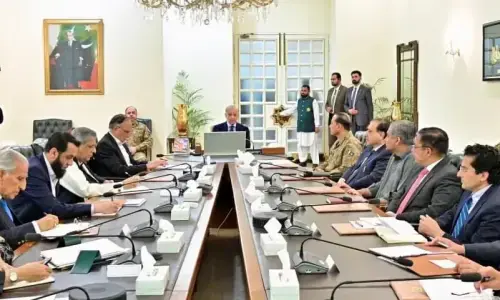 |
We all know that Arab General Muhammad Bin Qasim conquered Sindh in 712 AD. However, the facts surrounding this conquest, and the ill fate that followed for the conqueror is known to few among us.
According to researcher and historian Dr Mubarak Ali, the war between Muhamad Bin Qasim and Raja Dahar was never a war of faith versus infidelity. He further says that it is not correct that Muhammad Bin Qasim’s men included Hindus of scheduled castes fighting for him.
It was after Muhammad Bin Qasim had conquered Sindh and had marched further ahead that locals started joining the Arab forces due to poverty and joblessness. According to Dr Mubarak Ali, the Arabs started ruling under the umbrella of an ancient elite class, thus their behaviour towards the lower and humbler communities never changed.
As such, the taking over of the reigns of Hind and Sindh by the Arabs never changed a thing for the already oppressed and victimised classes of society, which is claimed to be the focus of Islamic governance.
So, who is to decide if Muhammad Bin Qasim was a predator or a preacher?
No glory in death
Chachnama, a Sindhi book published by the Sindhi Adabi Board in 2008, speaks of Muhammad bin Qasim's demise on page 242 to 243. I will try to summarise it for you.
After Raja Dahar was killed, two of his daughters were made captive, whom Muhammad Bin Qasim sent to the capital Damascus. After a few days, the Caliph of the Muslims called the two young women to his court. The name of the elder daughter of Raja Dahar was Suryadevi, while the younger one’s name was Pirmaldevi.
Caliph Waleed Bin Abdul Malik fell for Suryadevi’s extraordinary beauty. He ordered for her younger sister to be taken away. The Caliph then began to take liberties with Suryadevi, pulling her to himself.
It is written that Suryadevi sprang up and said: “May the king live long: I, a humble slave, am not fit for your Majesty's bedroom, because Muhammad Bin Qasim kept both of us sisters with him for three days, and then sent us to the caliphate. Perhaps your custom is such, but this kind of disgrace should not be permitted by kings.”
Hearing this, the Caliph’s blood boiled as heat from anger and desire both compounded within him.
Blinded in the thirst of Suryadevi’s nearness and jealousy of Bin Qasim who had robbed him of the purity he would otherwise have had, the Caliph [sic] immediately sent for pen, ink and paper, and with his own hands wrote an order, directing that, “Muhammad (Bin) Qasim should, wherever he may be, put himself in raw leather and come back to the chief seat of the caliphate.”
Muhammad Bin Qasim received the Caliph’s orders in the city of Udhapur. He directed his own men to wrap him in raw leather and lock him in a trunk before taking him to Damascus.
En route to the capital, Muhammad Bin Qasim, conqueror to some, predator to others, breathed his last and his soul departed to meet with the Creator in whose name he claimed to crusade in Sindh.
When the trunk carrying Muhammad Bin Qasim’s corpse wrapped in raw leather reached the Caliph’s court, the Caliph called upon Dahar’s daughters, asking them to bear witness to the spectacle of obedience of his men for the Caliph.
One of Dahar’s daughter’s then spoke in return and said: “The fact is that Muhammad Qasim was like a brother or a son to us; he never touched us, your slaves, and our chastity was safe with him. But in as much as he brought ruin on the king of Hind and Sind, desolated the kingdom of our fathers and grandfathers, and degraded us from princely rank to slavery, we have, with the intention of revenge and of bringing ruin and degradation to him in return, misrepresented the matter and spoken a false thing to your majesty against him.”
The author of the Chachnama then writes that had Muhammad Bin Qasim not lost his senses in the passion of obedience, he could have made the whole journey normally, while wrapping himself in raw leather and locking himself in a trunk only when a part of the journey remained to be covered.
He could have then proven himself innocent in the Caliph’s court and saved himself from such a fate.
Translated by Ayaz Laghari






























